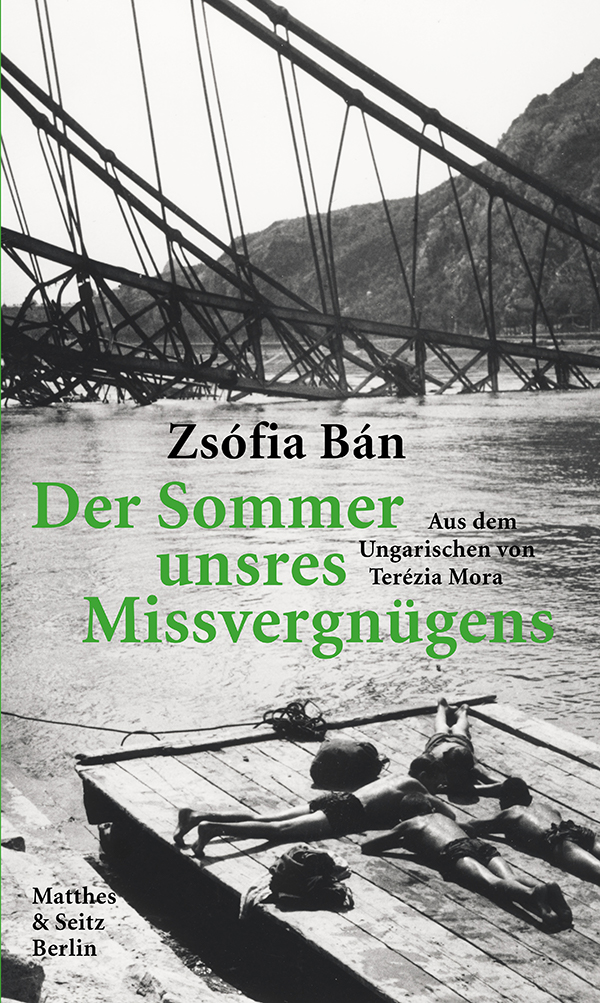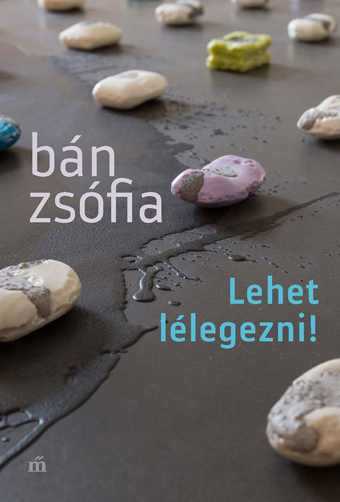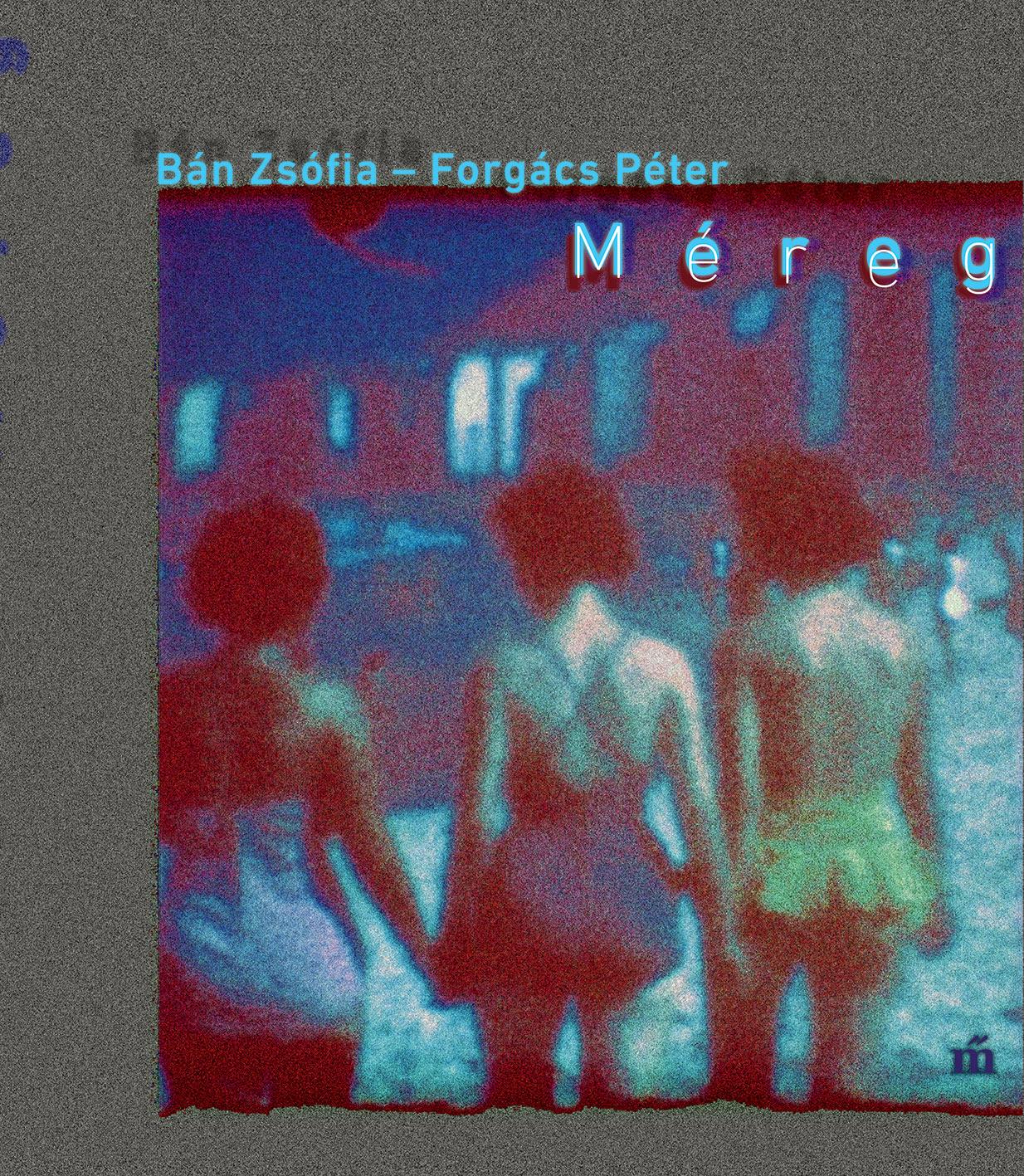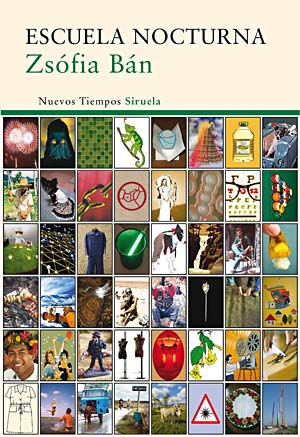[books]
Weiter atmen - Erzählungen (2020)
Suhrkamp. Aus dem Ungarischen von Terézia Mora. (@Suhrkamp)

Der Sommer unsres Missvergnügens. Essays. (2019)
Matthes & Seitz Berlin. Aus dem Ungarischen von Terézia Mora. (@Matthes & Seitz)

Night School: A Reader for Grownups (2019)
Rochester, NY: Open Letter Books. English translation of Esti iskola, translated by Jim Tucker and illustrations by Ágnes Eperjesi. Afterword by Péter Nádas. (@OpenLetter // @Amazon)

Lehet lélegezni(2018)
Budapest: Magvető. [You Can Breath Now. Short stories]

Méreg(2017)
Budapest: Magvető. Co-authored with media artists and filmmaker Péter Forgács.[Venom. A visual adaptation of the short story "Venom".] Limited edition with 300 numbered copies.

Turul és dínó. Jelenetek a képek életébôl (2016)
Budapest: Magvető. [The Turul Bird and the Dinosaur. Scenes from the Life of Images. A collection of essays on the visual representation of historical memory.]

An excerpt in English in World Literature Today
Escuela nocturna (2015)
Madrid: Siruela. Nuevos tiempos. [Spanish translation of Esti iskola, translated by José Miguel González Trevejo and illustrations by Ágnes Eperjesi].

Als nur die Tiere lebten (2014)
Berlin: Suhrkamp, 2012. Aus dem Ungarischen von Terézia Mora. [German translation of Amikor még csak az állatok éltek]. More information.

For details and events, see Fiction.
Amikor még csak az állatok éltek (2012)
[When There Were Only Animals], Budapest: Magvetõ, short stories.

Abendschule - Fibel für Erwachsene (2012)
- Berlin: Suhrkamp, 2012. Aus dem Ungarischen von Terézia Mora. Mit einem Nachwort von Péter Nádas und Illustrationen von Ágnes Eperjesi [German translation of Esti iskola (2007) translated by Terézia Mora, with an afterword by Péter Nádas and illustrations by Ágnes Eperjesi]. More information @ Suhrkamp and in Fiction.

Próbacsomagolás
- [Test-Packing]. Essay collection. Kalligram, 2008.

--- Cover based on a photograph by Lenke Szilágyi ---
“As a critic Zsófia Bán writes on literary topics as well as on art and visual media. This recent volume is a carefully and deliberately arranged collection of essays, reviews, travel writing, and memoirs. Topics range from novels by W. G. Sebald, Péter Nádas, and Imre Kertész, Goethe’s Elective Affinities, the Oedipal conflict of Hamlet, the absent presence and invisibility of the Shoah, Susan Sontag’s implacable personality, or a Berlin recreating itself from the traumas of its past, and a Singapore that keeps erasing its own past and looks only towards the future. It is the precise and proportionate arrangement that endows the texts with a narrative dimension. The ambitious aim of this narrative layer is to articulate the personal and collective problems of the culture of memory with both empathy and analytical sharpness. This is why travel emerges as the central motif of the book: travels between image and text, between different poles of space and time, and, in the third section, beyond time and space. The texts of this final section are both essays and memorial tributes – texts of crossing over in the truest sense. “ (János Szegõ)
Esti iskola
- Esti iskola: olvasókönyv felnőtteknek [Evening School: A Reader for Adults -- short stories]. Kalligram, 2007. (For more detail and other works of fiction, see Fiction)

--- Cover by Ágnes Eperjesi ---
Amerikáner
- Essay collection. Magvető, Budapest, 2000.

Desire and De-Scription
- Desire and De-Scription: Words and Images of Postmodernism in the Late Poetry of William Carlos Williams. Amsterdam Monographs in American Studies. Ed. Rob Kroes. Rodopi Press, Amsterdam/Atlanta, 1999.

Edited volumes
Exposed Memories: Family Pictures in Private and Collective Memory
Studies. Eds. Zsófia Bán and Hedvig Turai , AICA-CEU Press, 2010.
Contents:
- Introduction
- Photo as Autobiography
- Marianne Hirsch and Leo Spitzer Incongruous Images: “Before, During, and After” the Holocaust
- Nancy K. Miller, Beguiled by Loss: The Burden of Third-Generation Narrative
- Jay Prosser, The Baghdadi Jew and His Chinese Mistress
- Photo and Text
- Heinz Ickstadt, History, Narration, and the Frozen Moment of Photography in Richard Powers’ Three Farmers on Their Way to a Dance and Theresa Hak Kyung Cha’s Dictée
- Zsófia Bán, Memory and/or Construction: Family Images in W.G. Sebald's Austerlitz
- Private and Public Archives
- Rob Kroes, Virtual Communities of Intimacy: Photography and Immigration
- Géza Boros, Buried Images: Photography in the Cult of Memory of the 1956 Revolution
- András Bán, A Farewell to Private Photography
- Suzana Milevska, EVENTfulness: Family Archives as Events/Folds/Veils
- Family Albums
- Logan Sisley, Visualizing Male Homosexuality in the Family Album
- Ágnes Berecz, Please Recycle! On Ágnes Eperjesi’s Family Album
- Object/Photo/Reality
- Éva Forgács, From Photo to Object: Personal Documents as History-Writing in the Works of Christian Boltanski and Ilya Kabakov
- Hedvig Turai, Home Museum. An Installation by Katarina Ševic and Gergely László
- List of Contributors
- Exponált emlék: családi képek a magán- és
közösségi emlékezetben [Exposed Memory:
Family Pictures in Private and Public Memory]. Eds. Zsófia Bán
and Hedvig Turai. Hungarian Chapter of AICA (International Association of
Art Critics), Budapest, 2008.




